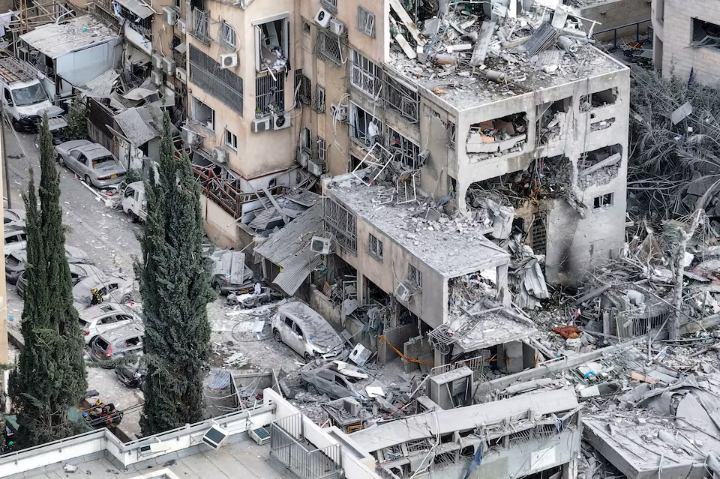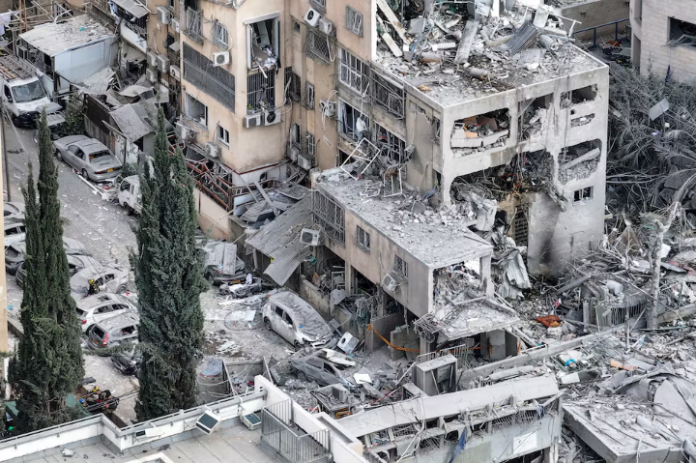The conflict between Iran and Israel took a dramatic turn on Monday as Israeli forces bombed Iran’s state broadcasting authority. The attack, which disrupted live news coverage, comes amid Iran’s public call for former U.S. President Donald Trump to intervene and stop what Tehran calls “Israeli aggression.”
Speaking on X (formerly Twitter), Iran’s Foreign Minister Abbas Araqchi stated, “If President Trump truly seeks diplomacy, it only takes one call from Washington to stop Netanyahu. That single act could reopen the door to negotiation.” He stressed that unless Israeli attacks cease, Iran will continue retaliatory strikes.
According to multiple sources, Iran has reached out to regional powers including Saudi Arabia, Qatar, and Oman, urging them to persuade Trump to press Israel for an immediate ceasefire. In return, Iran is reportedly open to compromise in nuclear discussions.
Israeli Prime Minister Benjamin Netanyahu, however, remains defiant. Addressing military personnel, he claimed, “We are on the path to victory. We are warning Tehran’s citizens to evacuate, and we are taking decisive action to neutralize threats.”
Video footage confirmed that Iran’s state television station was struck, showing a news anchor scrambling for cover as explosions hit the building. Israeli officials later confirmed the attack, stating it was conducted after residents were evacuated from the area.
Meanwhile, Iranian media reported that the country is preparing its “largest and most intense” missile offensive yet. Iran’s Revolutionary Guards claim to have discovered a new method that compromises Israel’s air defense by forcing its various missile systems to interfere with each other.
Since the conflict ignited last Friday with Israel’s surprise air assault, nearly 224 Iranians—mostly civilians—have been killed. State broadcasts have shown heartbreaking scenes of wounded children, collapsed buildings, and people desperately fleeing Tehran. Long queues for fuel and ATMs have become common as panic spreads.
In contrast, Israel has suffered 24 civilian deaths from Iranian missile strikes. Cities like Tel Aviv and Haifa were hit early Monday, leaving homes and schools in ruins. A drone image taken in Bnei Brak shows the extent of the destruction from one such missile attack.
One Tel Aviv resident, Guydo Tetelbaum, said the situation was terrifying. “There was no time. I tried to get to a shelter, but my door was blown in,” he told reporters.

Back in Tehran, civilians continue to bear the brunt of the attacks. Gholamreza Mohammadi, a 48-year-old civil servant, shared: “My children can’t sleep. We hid under the dining table. But where can we go?”
Iran’s parliament is now considering withdrawing from the Nuclear Non-Proliferation Treaty, a potential blow to international diplomacy. The conflict has already derailed peace talks that were set to be held in Oman.
Oil markets reacted sharply at first, with prices surging on Friday due to fears of a supply disruption. However, markets stabilized on Monday, indicating that traders expect energy exports to continue despite the growing tension.
With Iran’s economy shaken—its currency has lost over 10% in value—and civilian morale plummeting, the future of the Islamic Republic’s leadership faces its greatest test since 1979.



